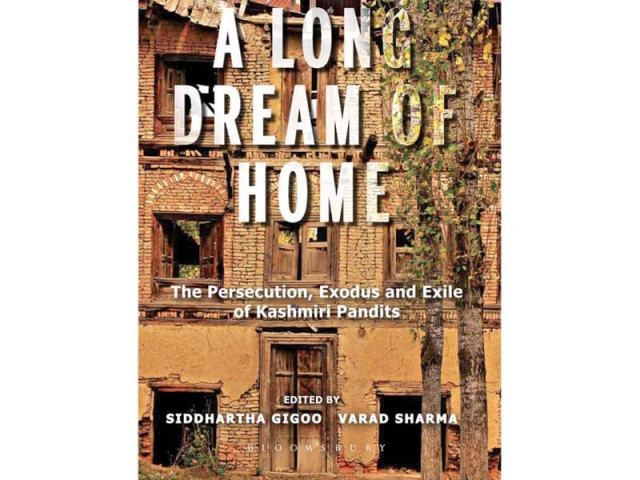Dreaming of a place called home
Book on Kashmiri Pandits does not provoke bias or propagate hate

Book on Kashmiri Pandits does not provoke bias or propagate hate
It is difficult to obliterate the memory of Kashmiri Pandits who fell victim to genocide. Although their blood has dried, their screams, cries and lost laughter continue to resonate in the hearts and minds of those who lived to tell their story.
The accounts of those who survived - or, were born after - are just as haunting as the stories of the deceased. It is a collective nightmare that can never be forgotten.
A Long Dream of Home: The Persecution, Exile and Exodus of Kashmiri Pandits serves as a chilling reminder of the exodus of Kashmiri Pandits. Through 29 memoirs, it recounts three generations of angst and displacement in Kashmir – a beautiful valley marred by the murder, rape, kidnapping and torture of the Pandits, who had lived there for over 5,000 years
An author does not need to balance two sides of a story to chronicle human pain. He or she just needs to tell the truth with clarity and compassion instead of politicising the brutal past. This is exactly what the young Kashmiri writers did in this novel. The past is viewed in a humane manner.
Book review: Say nay to fiat money
The 1948 Muslim riots and the 1950 land reforms drove many pandits out of the valley. Most of them were sent packing due to the rise of militancy. However, January 19, 1990 was the most chilling, most vicious nights of them all. These pandits were named ‘kafirs’ by the mosques. Their temples were raided and their idols were destroyed. Friends and neighbours turned against each other. There was disarray. People fled to Jammu. Those left behind suffered an unimaginable pain. But India did nothing to stand by them.
The book is divided into four parts. The first part concentrates on those born and brought up in Kashmir while the second sheds light on the people who were displaced. The third section explores the lives of those brought up in migrant camps. The last part examines the inner world of those who still dream to return to a place they once called home.
It is important to understand that some of the accounts narrated in the book brought dark clouds of uncertainty to the lives of these pandits, even though they may appear to be outcomes of fairly trivial matters.
Each memoir has been written in simple English. But there is a thread of intensity in each narrative that can provoke tears as the pages merge into chapters and the stories of defeat and survival unfold.
The book does not provoke bias. There is neither a semblance of fault-finding nor hate. The preface recounts the history perfectly while the memoirs reveal truths that have never been heard of.
At the end of the book, readers realise that while the Pandits may have lost their home, their dream of returning is still alive.
Title: A Long Dream of Home: The Persecution, Exile and Exodus of Kashmiri Pandits
Edited by: Siddhartha Gigoo and Varad Sharma
Publisher: Bloomsbury India
ISBN: 9789385436208
Pages: 352
The writer is a former sports editor at The Express Tribune
Published in The Express Tribune, March 27th, 2016.
Like Life & Style on Facebook, follow @ETLifeandStyle on Twitter for the latest in fashion, gossip and entertainment.



















COMMENTS
Comments are moderated and generally will be posted if they are on-topic and not abusive.
For more information, please see our Comments FAQ